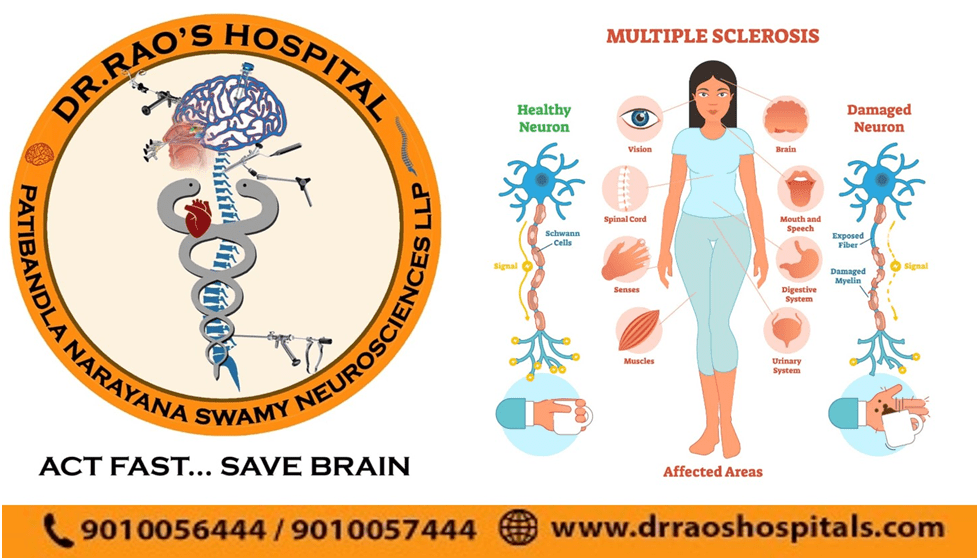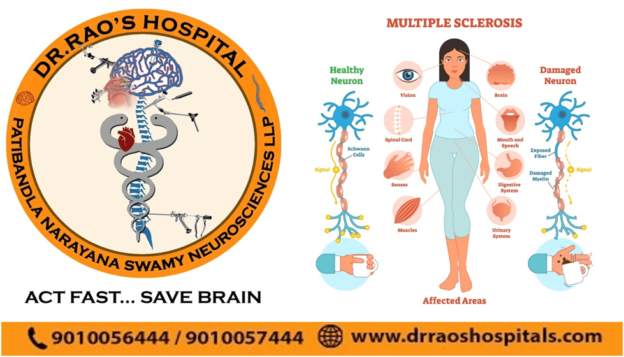The Best Neurosurgery Hospital In India For Dysesthesia?
I. Introduction
Neurosurgery hospital in India- Dysesthesia is a condition characterized by a sensation of extreme heat or cold, painful, itchy, burning, or restrictive that is not matched by the physical environment. Dysesthesia means abnormal sensation. 12-28% of dysesthesia’s burning, tingling, or aching pain occurs in multiple sclerosis (MS). Dysesthesia can be caused by several factors, including genetics, medications, and underlying conditions. Looking for the best neurosurgery hospital in India for treatment of multiple sclerosis or trigeminal neuralgia? Look no further than Dr. Rao’s hospital in Guntur. The latest technology and medical care will get the best dysesthesia treatment.
A. Causes of dysesthesia: Dysesthesia results from nerve damage
1. Genetics
2. Medications
3. Underlying conditions: Stroke, MS, carpal tunnel syndrome
B. Symptoms of dysesthesia
The symptoms of dysesthesia differ between individuals, but they like to affect the face, skin, scalp, arms, mouth, torso, and legs.
- an itching, burning sensation crawling under the skin
- A restrictive feeling, “MS hug. “
- radiating pain
- Tingling or “pins and needles.”
- hot or cold sensation
- a sense of hitting the funny bone
- electric shock sensation
- sharp, stabbing pain
- pain or irritation from a light touch or wind breeze
- an aching feeling like a sore muscle
They may be acute or chronic and most likely persist for a long time.
Linking with other conditions like:
- Multiple Sclerosis
- diabetes
- Guillain-Barré syndrome
- Lyme disease
- withdrawal from or overuse of drugs
- shingles
- stroke
- HIV
- nerve injuries
- alcohol use disorder
- B12 deficiency
C. Diagnosis of dysesthesia
1. Physical exam
2. Tests: Oligoclonal antibodies, MRI, NCS
3. EEG
D. Treatment of dysesthesia
- Medications: Antiepileptic like Gabapentin, Pregabalin, Oxcarbamazepine, Carbamazepine; Baclofen, antidepressants.
- Surgery: Microvascular decompression or surgery of damaged nerves
- Other:
- warm or cool application
- wearing pressurized stockings, pants, socks, or gloves
- avoiding stress, getting enough sleep
- staying hydrated
- Aloe or calamine lotions
- topical ointments
- meditation
- gentle stretching exercises
- avoiding triggers
- avoiding hot environments
- wearing loose-fitting cotton clothing
- biofeedback therapy
- getting counseling
- avoiding smoking
- relaxation exercises
E. Follow-up of dysesthesia
1. In the case of medications
2. In case of surgery
3. In case of other
III. Conclusion
Dysesthesia is characterized by a sensation of extreme heat or cold that is not matched by the physical environment. Dysesthesia can be caused by many factors, including genetics, medications, and underlying conditions. If you experience dysesthesia or abnormal sensations, seek help from the best neurosurgeon, Dr. Mohana Rao Patibandla, at the best neurosurgery and spine surgery hospital in Guntur. Call us at 9010056444 or 9010057444 or write us at info@drraoshospitals.com
for an appointment.


